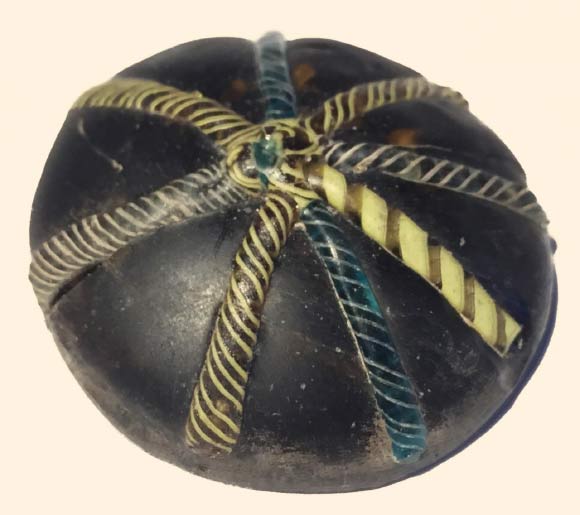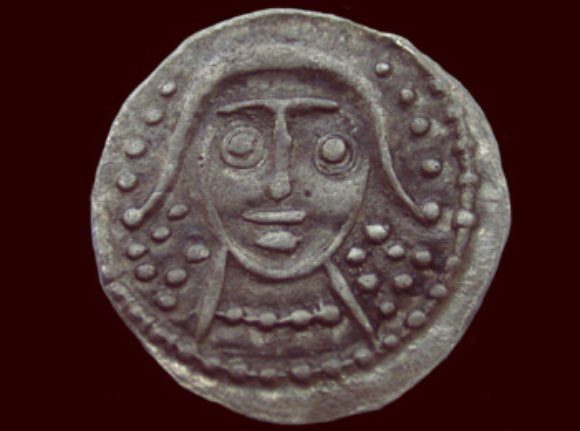A team of professional, student and volunteer archaeologists led by the University of Sheffield has unearthed evidence of a nearly 1,350-year-old Anglo-Saxon settlement on what once was an island near Louth, Lincolnshire, UK.

A glass counter decorated with twisted colorful strands was found at the site. Image credit: University of Sheffield.
The newly discovered settlement is thought to be a previously unknown monastic or trading center.
Among the first finds made at the site is a silver stylus, which is an ornate writing tool dating back to the 8th century CE.
The archaeologists and volunteers also found coins from the 7th-8th centuries CE, a huge number of sceattas (small, thick silver coins), 20 other styli, around 300 dress pins, and a small lead tablet bearing the faint but legible letters spelling ‘Cudberg’ which is a female Anglo-Saxon name.
University of Sheffield archaeologists Dr. Hugh Willmott and Pete Townend carried out targeted geophysical and magnetometry surveys along with 3D modeling to visualize the landscape.
The imagery showed that the island was much more obvious than the land today, rising out of its lower surroundings.
To complete the picture the team raised the water level digitally to bring it back up to its early medieval height based on the topography and geophysical survey.
“Our findings have demonstrated that this is a site of international importance, but its discovery and initial interpretation has only been possible through engaging with responsible local metal detectorists who reported their finds to the Portable Antiquities Scheme,” Dr. Willmott said.
The team also found a number of other intriguing items including an area which seems to have been an area of industrial working, as well as very significant quantities of Middle Saxon pottery and butchered animal bone.
“It’s been an honor to be invited to work on such a unique site and demonstrate the importance of working with local people on the ground,” Dr. Willmott said.
“One of the greatest strengths of the University of Sheffield is its active promotion of an understanding of our shared pasts for all concerned.”








